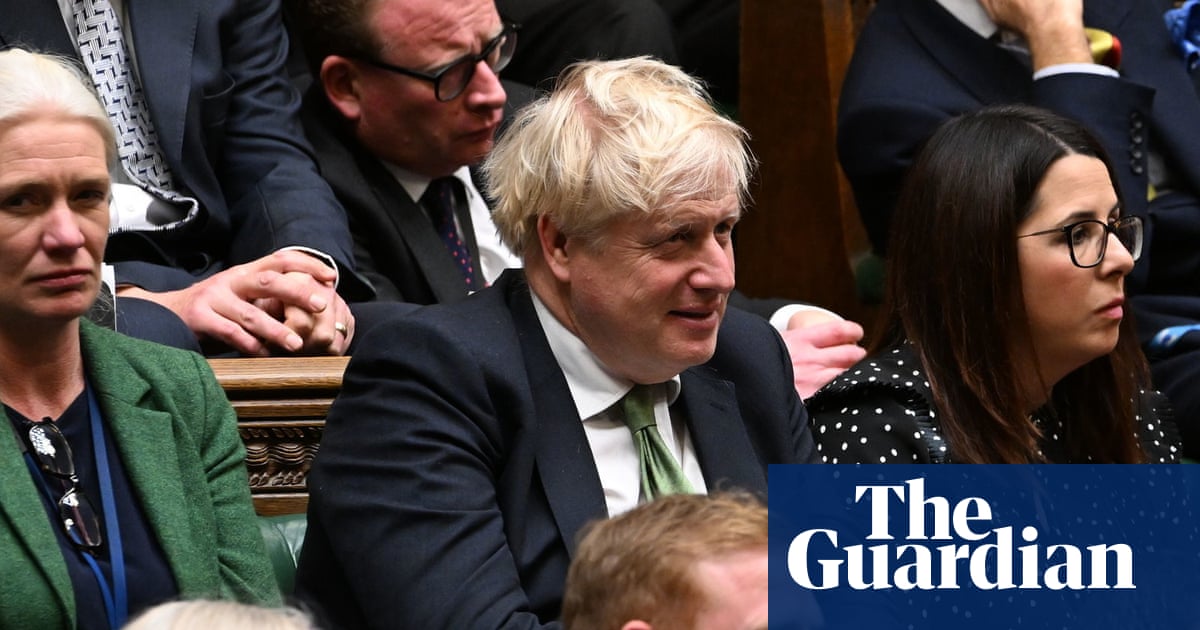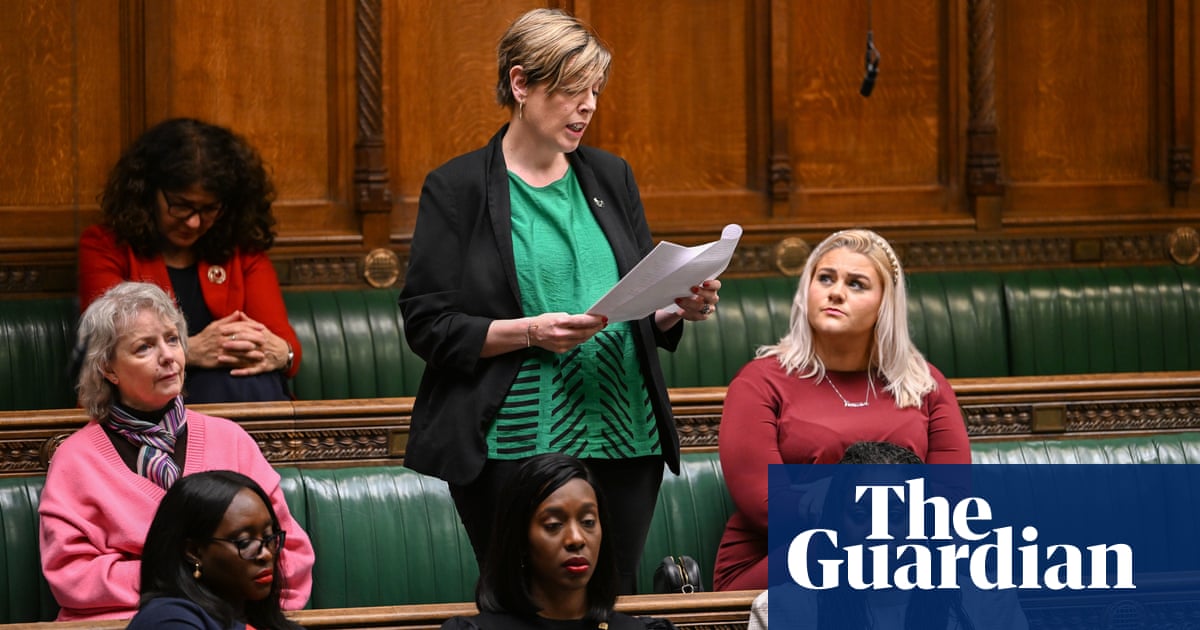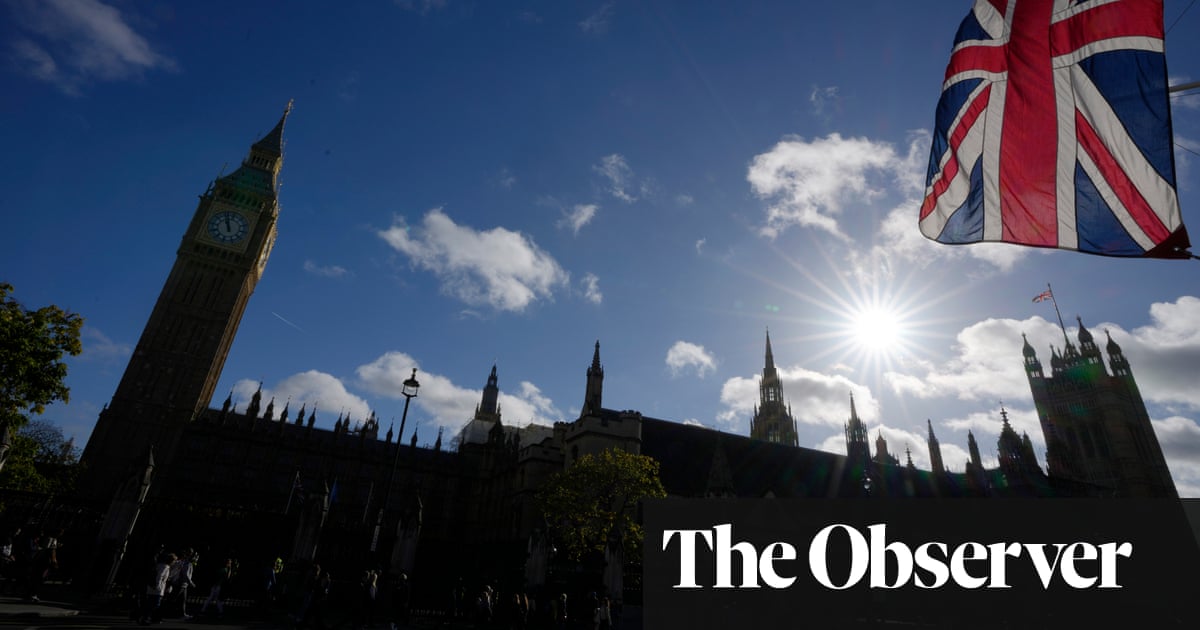
MPs have been paid £10m from second jobs and freelance work over the past year, largely driven by the size of Boris Johnson’s earnings as well as former Tory ministers taking up a slew of highly paid roles, a Guardian analysis has found.
Almost 18 months after the furore around second jobs led to promises of a crackdown, MPs’ earnings from work outside parliament have continued to rise.
The analysis looked at all MPs who made more than £1,000 in the past year, excluding income from completing surveys. Even stripping out Johnson’s £4.8m, about 90 other Conservative MPs brought in approximately £4.75m – an increase from nearer to £4m in 2021.
A much smaller number of Labour, SNP and Lib Dem MPs also brought in outside income of just over £400,000.
The government last year ditched plans to cap MPs’ income from second jobs, just months after the issue provoked a sleaze scandal that plunged Johnson’s government into crisis. The promised clampdown followed the Owen Paterson lobbying scandal and a furore over Geoffrey Cox being paid nearly £6m as a lawyer since joining parliament, voting by proxy on days he was undertaking paid work.
The rise in incomes over the past year appears to have been partly driven by a minority of Conservative MPs taking on very highly paid work, from lucrative consultancies to well paid media gigs for the rightwing GB News channel, as well as Rupert Murdoch’s TalkTV.
Some of the highest-paid include the former business secretary Jacob Rees-Mogg, who is paid about £29,000 a month to host a programme for GB News – which would make him about £350,000 in a year.
Brandon Lewis, a former party chair and ex-cabinet minister, now has three business strategy jobs, including one working for a property developer, making him in total £150,000 a year, while Chris Skidmore, a former minister who carried out a net zero review for No 10, has three jobs in clean energy and policy making him about £200,000 a year.
Sajid Javid, a former chancellor, is being paid £25,000 a month – or £300,000 a year – as adviser to Centricus Partners, a Jersey-based investment firm, related to “global economic outlook, geopolitics and financial markets”.
The figures, compiled from the Register of MPs’ interests, also highlight how some ministers have been part of a revolving door – leaving office during the Johnson era, taking on second jobs, and then returning to government during Rishi Sunak’s tenure.
Oliver Dowden, the deputy prime minister, was paid £8,000 to advise the hedge fund Caxton Associates on policy and £5,000 by an art services business in the short period he was out office last autumn under Liz Truss.
Meanwhile, Gavin Williamson, a former education secretary, resigned his £60,000-a-year second job working for RTC Education, a firm run by a Tory donor, when he went to work for Sunak in October 2022 and then signed back up again in February 2023, a few months after he was ousted from cabinet again.
Some MPs shed their second jobs shortly after Johnson said he was looking at limiting outside income in terms of hours or pay – a policy that was later dropped by the government. But a string of others have taken on new roles in the past year, such as the former Home Office minister Sir Mike Penning, who took a third extra job last October being paid £5,000 a month as a non-executive of a firm called Tenacious Holdings, which markets cannabidiol (CBD) products.
The high earnings are also driven by former prime ministers and senior ex-cabinet ministers making money from speeches and television appearances. Theresa May and Liz Truss were both paid six figures to run their post-No 10 offices from giving speeches, while the former health secretary Matt Hancock registered about £450,000 from media appearances, speeches and his book.
There were at least 18 MPs whose outside incomes totalled more than their £86k MP salary in the year to the end of July, compared with 11 in the autumn of 2021, when Owen Paterson was found to have committed an “egregious” breach of lobbying rules by lobbying for two firms he was paid to advise.
The highest Labour earner over the last year was David Lammy, the shadow foreign secretary, who made more than £90,000 from presenting on LBC radio and giving speeches. Labour has signalled that if it wins power it will not allow MPs to take up paid directorships or consultancies. Those Labour MPs conducting outside work at the moment are largely making money from freelance work, from books or professional jobs such as working shifts as a doctor.
Transparency campaigners called for tighter rules as more MPs will be looking to supplement their income over the next year: many Conservatives fear losing their seats at an election, with Labour favoured in the polls.
Jonathan Evans, the former MI5 chief and chair of the committee on standards in public life, renewed his call last month for new curbs on MPs’ outside work, suggesting to Sky News there should be an “indicative ceiling” on how much time they should devote to them.
At the same time, Eric Pickles, the Conservative peer and chair of the Advisory Committee on Business Appointments (Acoba), has asked for a new regime to fine ex-ministers who contravene lobbying restrictions on outside employment to be in place by the autumn reshuffle. A Sky News and Tortoise investigation found last month that MPs had worked about 89,000 hours in their second jobs since the beginning of the parliament.
Sue Hawley, of the campaign group Spotlight on Corruption, said parliament and regulators needed to tighten up the rules on second jobs as MPs within the next year, as some parliamentarians seek to maximise their earnings potential before leaving office.
“It’s increasingly clear that parliament, and its standards regulators, need to be looking closely at when MPs earning huge sums outside of their role in parliament damages the reputation of the House of Commons,” she said. “There is a real risk that MPs and ex-ministers earning such huge sums fuels cynicism about parliament and risks undermining faith in democracy.
“It’s also clear that as ministers eye the possibility of being ejected at the next election, the rules on the revolving door need toughening up urgently to prevent potential conflicts of interest. That’s why the government needs to heed Lord Pickles’ call to lay out a timetable for urgent implementation of these rules over the autumn.”
Tom Brake, the director of Unlock Democracy and a former deputy leader of the House of Commons, also made the case for reform, saying it was undermining faith in the democratic system.
“For too many, being an MP is a sideline or an afterthought. For them, earning big money elsewhere or brushing up their TV presenter skills is their priority, not fighting for constituents struggling with a cost of living crisis.
“Former PM Boris Johnson’s pledge to tackle MPs’ second jobs was always suspect. These latest figures show it was entirely bogus,” he said.
Richard Burgon, a Labour MP and former shadow justice secretary, said the figures showed why the government should adopt his bill that would ban MPs from having second jobs. “While millions face a cost of living crisis, it’s a disgrace that some MPs are still busy lining their own pockets through second jobs,” he said.












